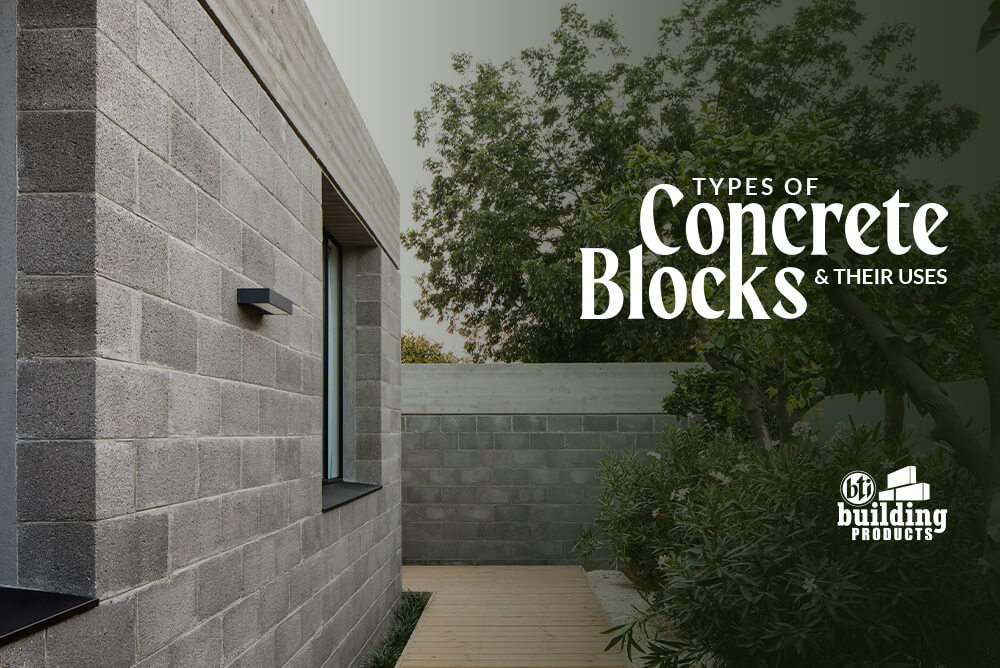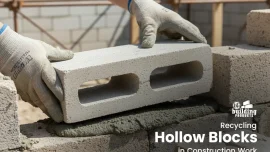
Types of Concrete Blocks & Their Uses
Masonry has been around since ancient times. Although, the materials went from stone to modern day concrete blocks. There are mainly two types of concrete blocks used in construction- hollow blocks and solid bricks. Both are used to construct walls but can be repurposed for other structures. Concrete blocks are also known as concrete masonry units (CMU) and can come in a variety of sizes and shapes, based on your preferences and budget. This article has much-needed details that you should be aware of before choosing the type of concrete block that is perfect for you.
Similarities
Both types of concrete blocks are strong and durable. They were previously called cinder blocks because cinders generated in coal plants were used instead of sand and gravel in the composition of concrete blocks. Now the key components that make up the concrete blocks are concrete, sand, gravel, stone, and water in appropriate proportions. The mixture is shaped into uniform blocks with a smooth finish. Both blocks are more preferable than red bricks because they are cost-effective, use less mortar and water, are machine-made, produce minimum environmental waste, and are highly durable. These blocks can be fashioned into other structures that can come in handy during interior design, gardening, landscaping, and home decor. These blocks are also resistant to salinity and most weather effects.
Concrete Hollow Blocks
Concrete hollow blocks are primarily used to construct walls, fences, and other large structures. These blocks have holes that cover equal to or more than half of the cross sectional area of the block. The hollow cores bring a myriad of advantages. For example, they make the blocks lighter and easier to carry around. Construction becomes a lot faster and affordable as a result. Running wires, pipes, and rebar through these holes are also much easier, and also adds to the strength & stability of the building. There are three grades of concrete hollow blocks:
- Grade A: these blocks have the highest density, more than or equal to 1500 kg/m3.
- Grade B: these blocks have a density somewhere between 1000 to 1500 kg/m3.
- Grade C: these blocks have a density lower than 1000 kg/m3.
Typically Grades A and B are used in load-bearing walls. Grade C blocks are used in non-load-bearing walls. Hollow blocks are also used as planters, retaining walls, foundations, steps, or fire pits.
Concrete Solid Bricks
These are also a type of concrete hollow block but the difference is that these can have ‘less hollow’ variations. So you can have fully solid blocks or mostly solid ones. They are bigger in size than concrete hollow blocks. They are excellent when used in paving, because it offers more stability. Imagine the uncomfortable experience of having to walk on pavements filled with holes! They are also great for creating walls that offer strong protection from winds, making them more preferable in hilly and coastal areas. Solid bricks can also be used as landscaping installations and interior decor, but because it is solid it has less versatility than hollow blocks.
These blocks can come in a variety of colors and sizes. Customize however you want with bti Building Products. Depending on your budget and construction needs, we can help you decide which building product is perfect for you. Order now by calling 16604, or visit www.btibuildingproducts.com to check out our unipavers and pavement tiles too.




